
Laundry settings: washer and dryer cycles explained
Your washer and dryer have a variety of settings to accommodate different fabric care needs. Following your clothing’s care tag and understanding your appliance’s laundry symbols is the best way to choose washing machine settings and dryer cycles, keeping in mind that cycles may vary between front load and top load washers. Take the guesswork out of caring for different fabrics with this guide to washer and dryer settings.
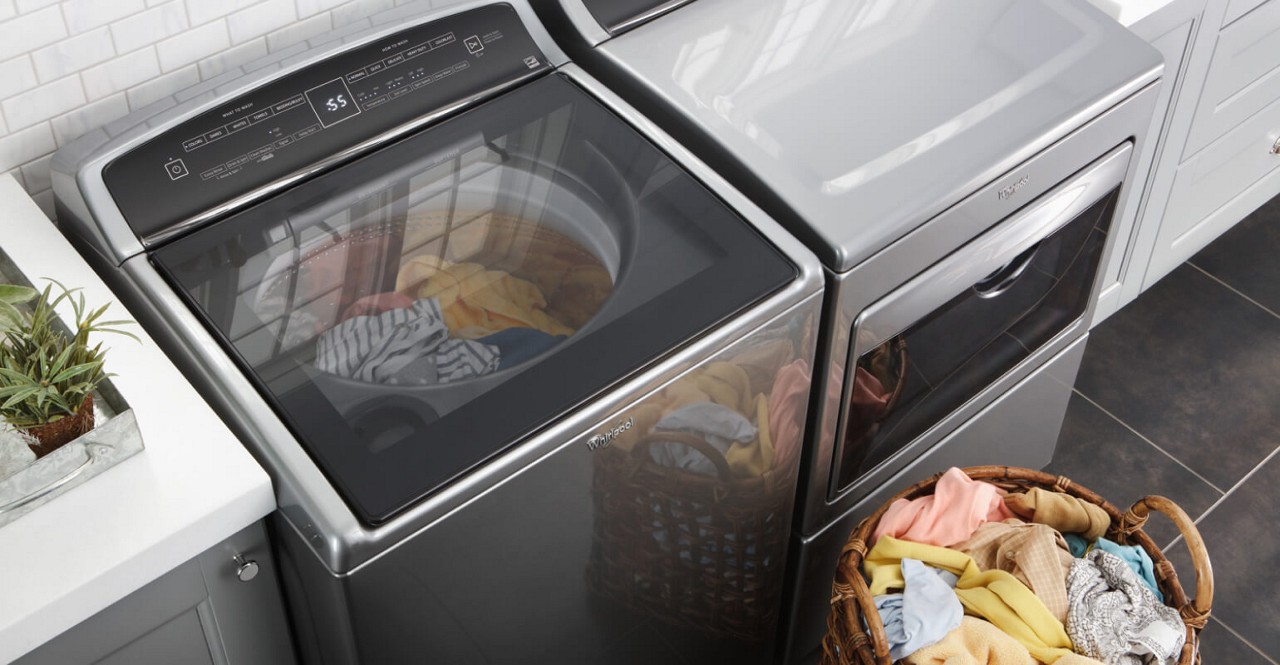

Washing machine settings explained
There are several washing machine cycles, and each setting is designed to provide the right spin speed, temperature and rinse for items with certain fabrics and soil levels. Whether you have a front load or top load washer, general washing machine cycles include Normal, Colors, Whites, Quick Wash, Rinse and Spin, Delicates, Bulky/Sheets and Heavy Duty.
Cycle names and settings may vary depending on the make and model of your appliance. Be sure to consult your user care guide for model-specific information. Remember to always follow the instructions on your garment’s care tag for the recommended washing machine cycles and dryer settings.

1. Normal cycle
Temperature: Warm
Average cycle time: 60 mins
This cycle uses warm water with a high spin speed for moderately soiled cottons, linens and other mixed fabrics.

2. Colors
Temperature: Cool
Average cycle time: 45 mins
This washing machine cycle uses cool water with a high spin speed designed for mixed activewear, dark and colored garments.

3. Whites
Temperature: Hot
Average cycle time: 65 mins
The Whites wash cycle uses hot water and high spin speeds to clean heavily-soiled white garments. Coupled with bleach, this cycle can help restore vivid shades of white.

4. Quick Wash
Temperature: Warm
Average cycle time: 30 mins
Using warm water and a high spin speed, the Quick Wash cycle is ideal for small loads of laundry when you’re in a pinch. Simply drop in two to three items for an accelerated wash and keep your clothes ready when you need them.

5. Rinse and Spin
Temperature: Cold
Average cycle time: 25 mins
The Rinse and Spin cycle consists only of a high-speed spin and cold water. This is ideal for garments only needing a detergent-free wash or rinse, such as swimsuits.

6. Drain and Spin
Temperature: N/A
Average cycle time: 10 mins
The Drain and Spin cycle does not use any water. Instead, it uses a rapid spin speed to help quickly dry hand-washed clothes, soaking wet items and heavier fabrics. This cycle is also designed to drain your washer after a canceled load or interrupted cycle.

7. Delicates
Temperature: Cool
Average cycle time: 50 mins
This washing machine cycle uses high levels of cold water and a low spin speed for carefully tending to undergarments, neckties, stuffed animals and delicate fabrics, like some silks. Use this cycle for garments marked as “Machine Washable Silks” or “Gentle” on the care tag. To help prevent damage to your clothes, remember to place your delicates, like bras, in a sealed mesh bag before washing, and always check your care tags.

8. Bulky/Sheets
Temperature: Warm
Average cycle time: 55 mins
The Bulky/Sheets washer cycle uses warm water and a low spin speed to care for sheets, blankets, sleeping bags, comforters, jackets, washable rugs and other bulky items. This setting uses more water than other cycles in order to fully soak the large loads.

9. Heavy Duty
Temperature: Hot
Average cycle time: 75 mins
The Heavy Duty washing machine cycle uses hot water and high spin speed for thick, heavily-soiled fabrics, like towels and jeans. Loads washed in this cycle may take longer because these items tend to absorb more water than other types of fabrics. Learn more about how long washers take to wash clothes.

10. Sanitize Cycle
Temperature: Hot
Average cycle time: 120 mins
Select washing machines offer a Sanitize cycle that uses extra hot water and longer cycle times to help kill household bacteria.

11. Clean Washer
Temperature: Hot
Average cycle time: 60 mins
Your washing machine cleans your family’s clothes, keeping them fresh and ready to wear, but did you know your washer also needs to be cleaned? This cycle uses hot water and a low spin speed with an empty drum. It is recommended to clean your washer after every 30 loads or so to help keep it fresh and clean. Use a cleaner such as affresh® Washing Machine Cleaner Tablets1 to get rid of any grime and odor-causing residue in your appliance.

2 in 1 Removable Agitator
Clean the way you want with two ways to wash
Shop Whirlpool® Washing Machines
Select Whirlpool® Washers feature a convenient Load & Go™ XL Dispenser that can hold up to 40 loads worth of detergent.2 Not only can this take the guesswork out of detergent dosing by adding it for you, but when it’s time to refill the detergent, this is also a handy reminder that it’s time to clean your washer.
Washing machine temperature settings
Your washing machine may have hot, warm, cool, cold and tap cold temperature settings that typically range from 65-140˚F to provide the right care for garments of various sizes and fabrics.
Always follow the care tag’s water temperature recommendations for the right setting for your fabrics.

1. Hot water
Hot water washing cycles typically have a temperature of around 140°F. This temperature is ideal to help keep your towels, jeans and certain white garments clean and ready to wear. Keep in mind that hot water may cause certain fabrics to shrink.

2. Warm water
Warm water temperatures generally range from 105°F to 120°F and can be used for a variety of washer cycles, like Normal, Quick Wash and Bulky/Sheets settings. Warm water is ideal for bright-colored clothing with moderate amounts of soil.

3. Cool water
Cool water temperatures range roughly above 85°F and are great for loads of colored and dark garments, including activewear. In this setting, your washer may add warm water to help tend to heavily-soiled clothing.

4. Cold water
Cold water washing cycles have a temperature of 85°F and are meant for delicate garments and dark colors prone to bleeding or fading. Cold water can also be used to help prevent clothes from shrinking and pilling.

5. Tap cold water
Tap cold water refers to the water coming from your home’s water supply line. Depending on your region, water may be hotter or colder than recommended for your washer. If your tap water is too cold, your washer may compensate by adding warm water until a middle ground is reached to provide the best cleaning. This temperature helps prevent dark clothing from fading or bleeding onto other fabrics.
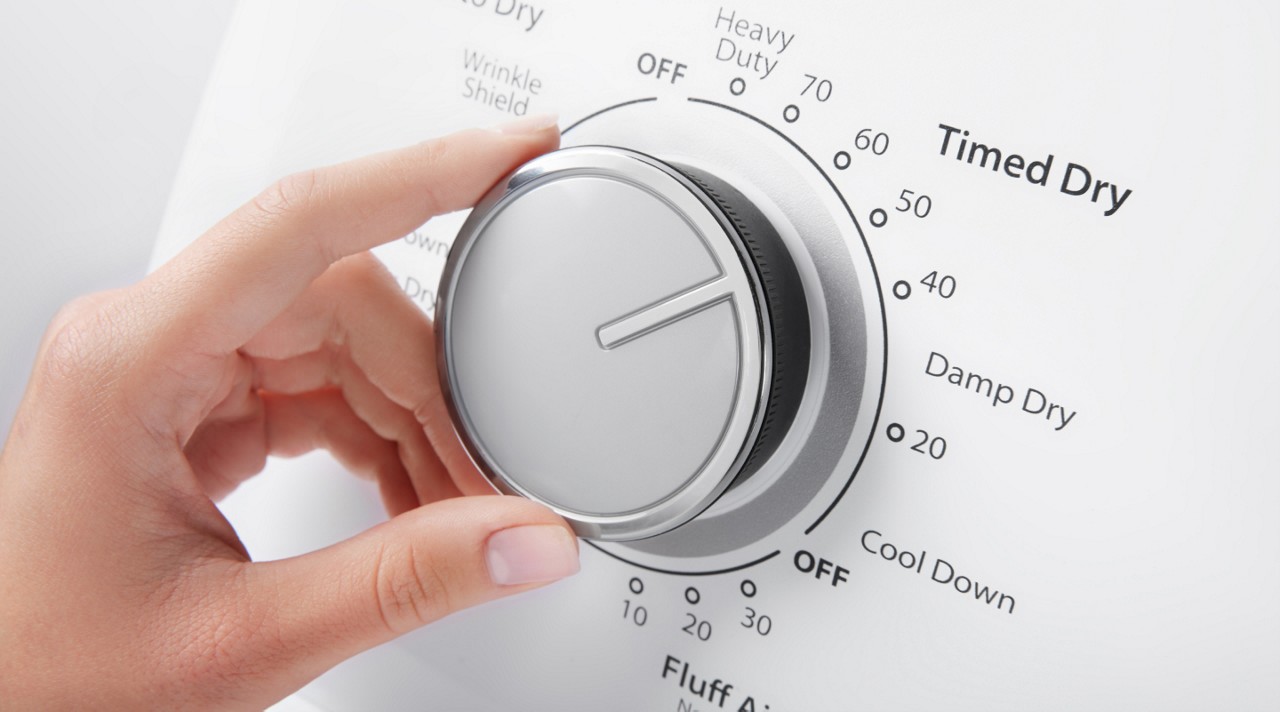

Dryer settings explained
The dryer setting you use depends on the fabric and recommendations on your garment’s care tag. As a general rule, higher temperatures are best used for heavy items, like towels, jeans and jackets. Low to medium heat settings are ideal for sheets, blouses and undergarments, while no-heat settings are designed for heat-sensitive fabrics or garments containing rubber or plastic. When in doubt, always refer to your garment’s care tag for specific drying instructions to keep your family’s clothes ready to wear.

1. No Heat or Fluff
Temperature: N/A
This dryer setting is best for air drying items containing rubber, plastic or other heat-sensitive fabrics such as rubber-backed bath mats and rugs.

2. Timed Dry
Temperature: Medium
Selecting this cycle will dry your clothes for the set amount of time that you choose, including quickly drying items on a high heat setting.

3. Delicates or Less Dry
Temperature: Extra Low
This dryer setting uses a low temperature to dry and help prevent your clothes from shrinking. This is best used for lightweight shirts and pants, delicates and athletic wear.

4. Normal or Regular
Temperature: Medium
This cycle can be thought of as “regular” and often automatically stops the load when optimal dryness levels are reached.

5. More Dry or Very Dry
Temperature: Medium
This dryer cycle uses a high temperature to dry sturdy fabrics, like jeans and towels.

6. Heavy Duty or Heavy Dry
Temperature: Medium
For large, bulky items, like robes or comforters, a Heavy Duty/Heavy Dry setting uses higher temperatures and longer cycles to get them completely dry and fluffy.

7. Permanent Press
Temperature: Low
Permanent Press settings can help remove and reduce wrinkles with a medium heat and cool down. This cycle may be labeled as “wrinkle control” on Whirlpool® Dryers, with some models featuring a dedicated Wrinkle Shield™ Option to help keep wrinkles from setting into clean, dry fabrics. Learn more about permanent press vs. delicate cycles.

8. Tumble dry
Temperature: Varies
Tumble dry settings can be used as an alternative to air drying to help save you time and keep your clothes ready to wear. With high heat, low heat or no heat options, tumble dry is a versatile option to get your items dry. Just remember to check your garment’s care tag to make sure it can be tumble dried.

9. Steam dry
Temperature: Medium
Steam dryers with this setting inject steam at the end of a cycle to help keep wrinkles from setting into clean, dry fabrics. Select Whirlpool® Washers feature a Wrinkle Shield™ Plus Option with Steam that uses tumbling and steam for improved wrinkle-fighting performance for up to 150 minutes after the cycle ends, or until you open your dryer door.
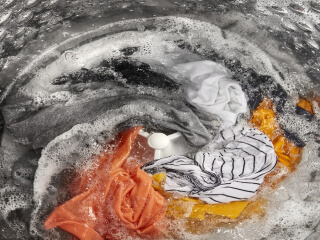
Need help finding a new dryer?
Shop Whirlpool® Dryers
Dryers from Whirlpool brand can have settings of No Heat, Timed Dry, Normal, Permanent Press, Tumble Dry, Less Dry, More Dry and Very Dry to properly care for your clothes. Some Whirlpool® Dryers also have a Wrinkle Shield™ Option to help prevent wrinkles in your clothes, as well as an AutoDry™ Drying System that automatically senses when your clothes are dry and stops the cycle.
Choose the right laundry cycle for every fabric
Choosing the right cycle starts with how you sort clothes. Sort by fabric type first. If you’re worried about colors bleeding from newer items or using different additives in the wash cycle (for instance, bleach with whites or brighteners with colors), further sort laundry by color. Take special items, like silk or rayon, into consideration when sorting laundry to avoid shrinkage and ensure it's washed properly. Always check care tags before following the advice below.
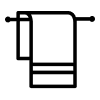
Towels
Washing machine settings: Heavy Duty or Towels
Dryer settings: Towels, More Dry, Very Dry, Heavy Dry or Heavy Duty
Care Tip: Refrain from adding fabric softener to loads of towels, as it makes them less absorbent.
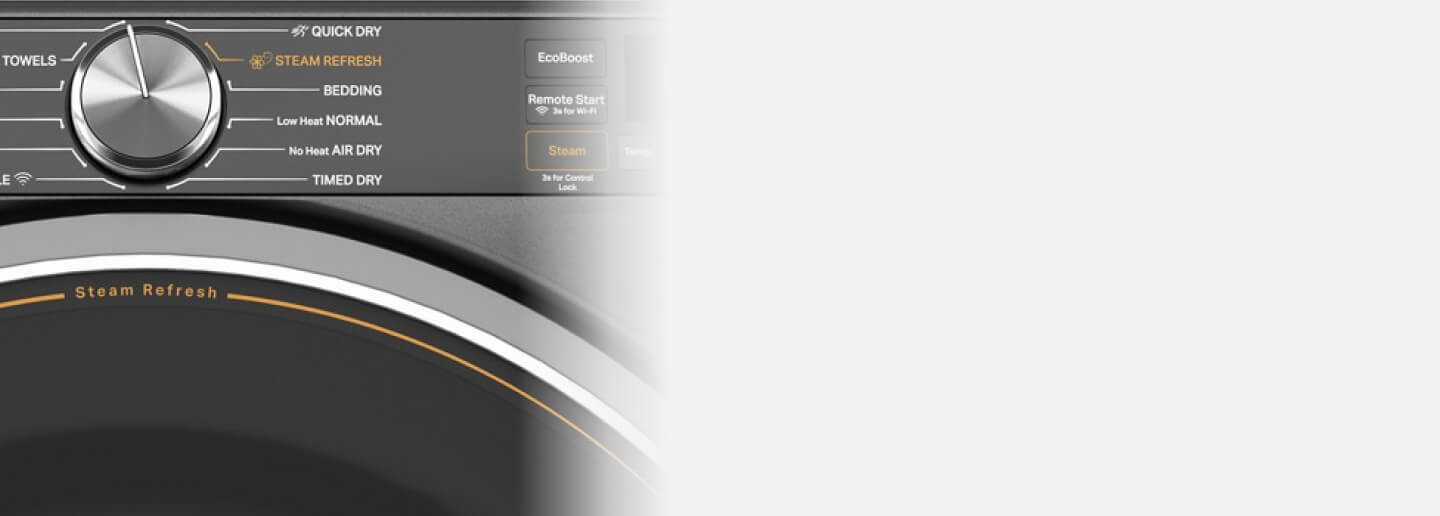
Steam-enhanced cycles
Refresh your clothes
Help clothes look their best with steam-enhanced cycles and options that help prevent wrinkles and reduce static, available now on select Whirlpool® Dryers
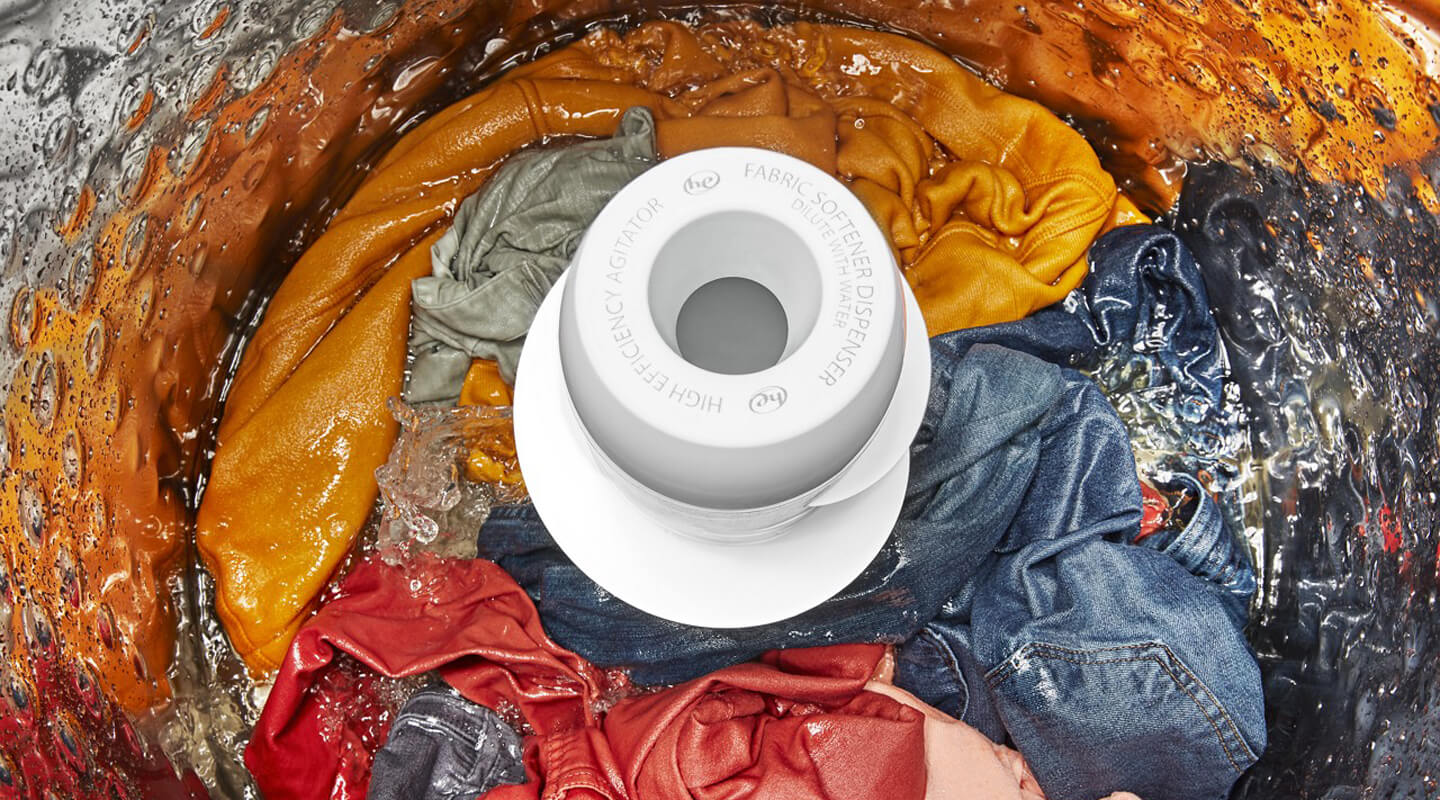

Looking for more customizable laundry cycles?
Whirlpool® Washers and Dryers with Intuitive Touch Controls make it easy to choose the right settings for each load—just select “what” and “how” you want to wash or dry. With different cycles and customizable settings, washers and dryers from Whirlpool brand can provide the right fabric care for your family’s favorite outfits and help take the stress out of laundry day.
Shop Whirlpool® Washer and Dryer Sets
Whirlpool® Laundry Sets are made to match with complementary features and styles. Explore front load and top load options to find the right pair that will help make laundry day a breeze.


Helping kids stay in school
Learn how Whirlpool helps end the dropout cycle by giving kids access to clean clothes through the Care Counts™ Laundry Program
Explore more from Whirlpool brand
Was this article helpful? Pass it on


home heartbeat
Ready for more tips, home hacks and appliance guides?
1. affresh® brand products and the recommending brands’ products are all owned and distributed by Whirlpool Corporation.
2. Based on an 8-lb. load.













